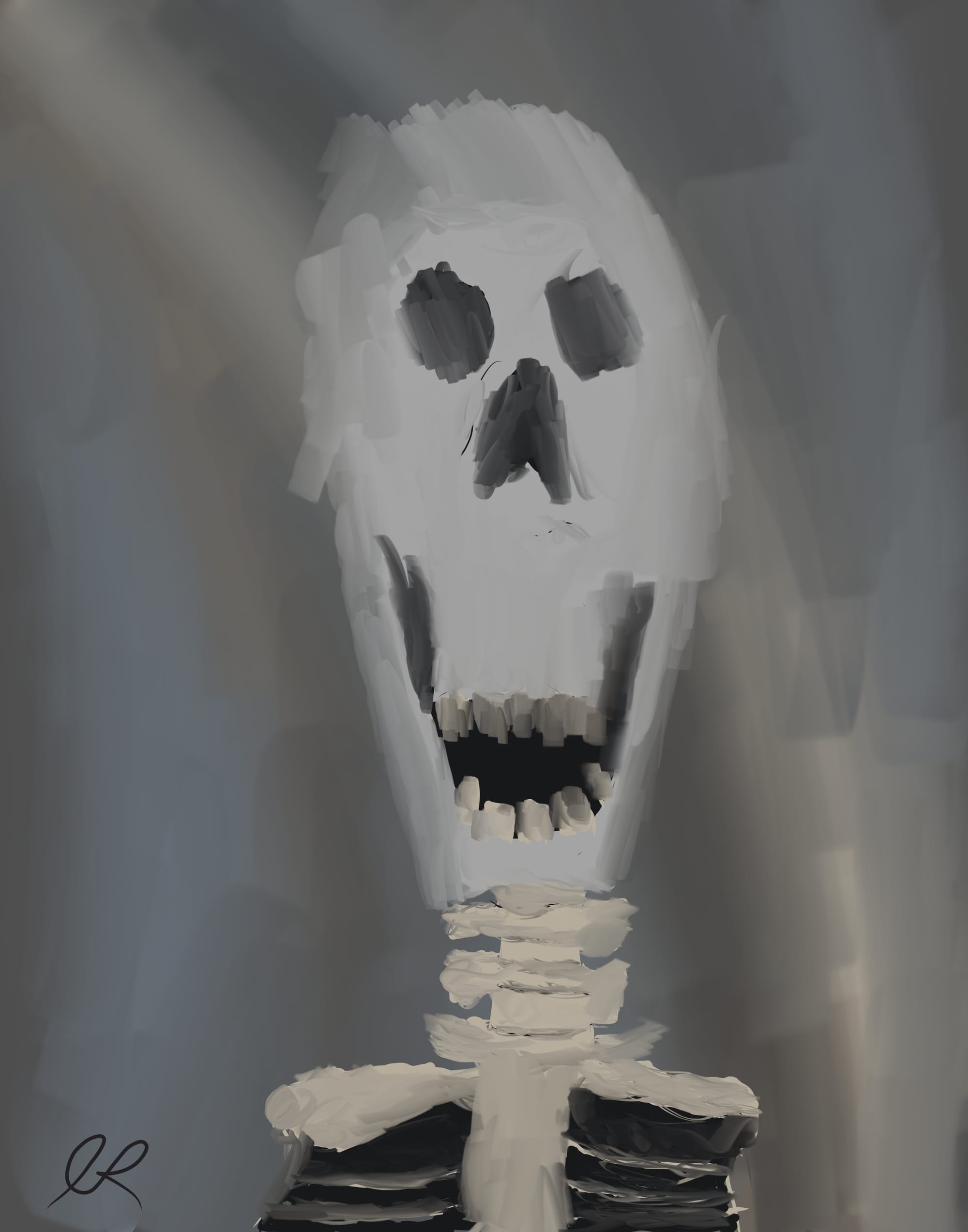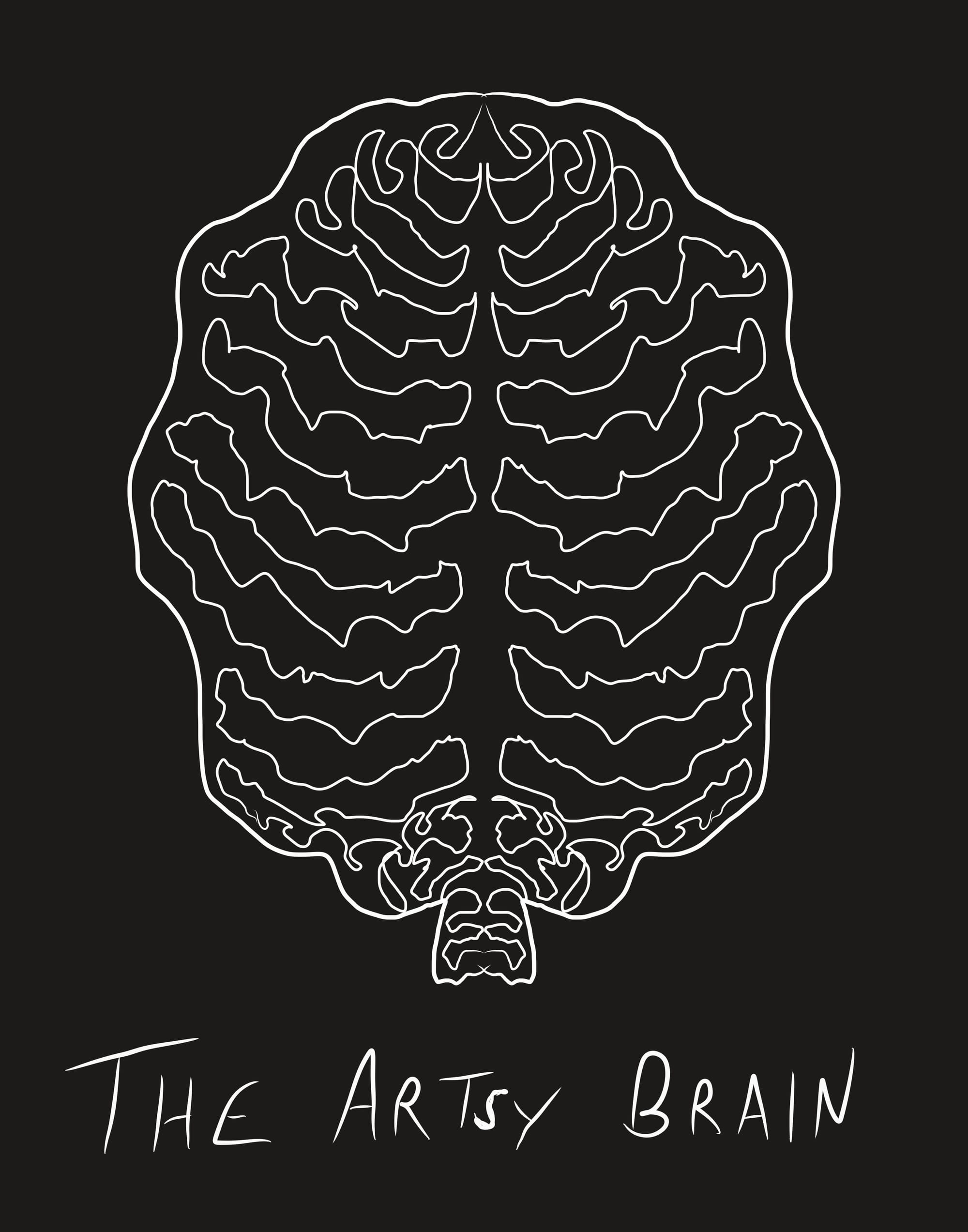Finding My Voice Through Existential Art: Laughing in the Dark Against Fascism

When I finished my latest painting, a skeletal figure, wide-mouthed under a stark beam of light, I thought I was just exploring mortality and absurdity. But the longer I look at it, the more I realize it has everything to do with the times we’re living in. My art has become a mirror for how I feel about free speech, vulnerability, and the creeping rise of authoritarianism.
This piece, for me, is existential art at its core: stripped-down, raw, and unflinching. Yet in its hollow expression there’s also a strange defiance. And in a world where fascism and censorship are pressing closer, that defiance feels deeply necessary.
Art as a Reflection of Mortality
Existential art has always fascinated me because it asks the hardest questions: What’s left when everything is taken away? Who are we beneath the layers of performance and identity?
In my painting, the answer is stark, bare bone, dark sockets, and a mouth that could be a laugh or a scream. It’s unsettling, but it’s also true. We’re fragile. We’re temporary. We’re exposed.
That vulnerability is uncomfortable to sit with. And yet, it’s the perfect metaphor for how I, and maybe many others, feel living in this current moment of history.
Living with Helplessness in Troubled Times
It’s hard not to feel powerless when fascist rhetoric grows louder, when freedoms are eroded, when silence is demanded in subtle and not-so-subtle ways. Watching the headlines pile up, I often feel stripped down to nothing, like that skeleton under the spotlight, fragile and unable to resist forces so much larger than myself.
This helplessness takes a toll. It feeds anxiety, and it makes the future feel like a shadow hanging overhead. And yet, there’s something inside me that refuses to give in completely.
Why Expression Matters Against Silence
The most haunting part of my painting isn’t its emptiness, it’s the laugh. That strange, almost mocking grin feels like resistance. It’s a reminder that even if I’m stripped to the bone, I still have a voice.
And in times like these, expression is everything. Fascism thrives on silence. It grows when people stop speaking out, when art stops challenging, when creativity is stifled. That’s why every act of honest expression matters, even when it feels small, even when it feels futile.
Sharing art, writing openly, speaking truthfully: these things become radical. Vulnerable expression is how we push back against conformity and fear.
Art as Resistance: Laughing in the Dark
I never intended my skeleton painting to be political, but in many ways it became a self-portrait of resistance. I can’t control the world, and I can’t stop all the forces that threaten free speech and self-expression. But I can keep creating.
For me, art is resistance, not because it’s loud or militant, but because it insists on being alive in a world that wants to flatten voices. Even when I feel like nothing but bones, I can laugh in the dark. And that laugh, however fragile, is a refusal to be silenced.
This is what existential art means to me now. It’s not just about confronting mortality, it’s about confronting fear, helplessness, and silence. It’s about holding on to my voice in times when it feels easier to give it up.
So I keep painting. I keep writing. I keep laughing in the dark. Because even in the face of encroaching fascism, I refuse to go silent.

